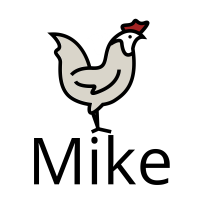For me, it may be that the toilet paper roll needs to have the open end away from the wall. I don’t want to reach under the roll to take a piece! That’s ludicrous!
That or my recent addiction to correcting people when they use “less” when they should use “fewer”


envy and jealousy are supposed to have different meanings, but idiots always use jealous when they mean envious. Annoys the fuck out of me.
I’m gonna be representative of the idiots here and ask:
I don’t get the difference. Please help.
Homer once explained it to his daughter Lisa. If you’re jealous, it means you are scared that someone else might take away what you already have. Being envious means that you want to have what somebody else has.
Oof… My language doesn’t differentiate between types of envy, we have one word. So I cannot even translate this.
To add to this, jealous is for example when you are afraid your partner will dump you for someone else.
Huh. I would’ve never guessed! Maybe that distinction doesn’t exist in French, which might explain why I’ve never heard of that before? Interesting!
Here’s one I can weigh in on. I realise they have different meanings now, but they didn’t always. As language evolves, often words that used to be synonyms are differentiated so that their meanings, while still similar, have a different nuance. An example off the top of my head: sin and crime. Sin was the Old English word for crime, before the Romance word ‘crime’ entered English, presumably after William the Conqueror invaded and French became the language of court. ‘Sin’ didn’t disappear, it just became a more specialised form of the now general word ‘crime’ - meaning a crime against God, used to describe moral failings rather than acts hurting others like theft or murder. We still have both words today, and both are useful, even though they originally meant the same. Since the distinction between ‘envy’ and ‘jealousy’ is arguably pretty nuanced, I suspect the same thing happened here - both were comparative and related to the difference between what you have and what your neighbour has, I think the differentiation is relatively recent. I’m not sure if this explanation helps you resolve this hill to die on, please let me know if I can elaborate further.
To defend myself, I’m not a native speaker and we only have a single word for both conceps. So to me these are synonyms because my language doesn’t differentiate between the two.
Even after looking up some definitions they pretty synonymous to me.
deleted by creator
English is pretty fluid and acceptable words and definitions morph with time. So in current use, they are pretty much interchangeable, but that still pisses me off. It’s a loss of nuance. It’s like we are actively dumbing down the language as if Newspeak is a good thing.
Let me take out my cane and say,“Back in my day…”
Example: I jealously protect what I have, probably to an unhealthy degree. At the same time, I sure envy that person for having something I wish I had.
This is one of the many things Homer taught us all.
Yet the Oxford Dictionary gives each as the others 1st definition. I don’t care either way, was just curious and looked them both up.